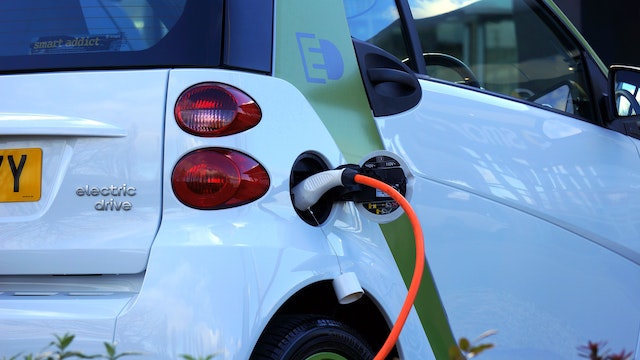The world of urban transportation is undergoing a remarkable transformation. At the heart of this change is the rise of electric bikes, commonly known as e-bikes. These two-wheeled marvels have steadily transitioned from being viewed as luxury gadgets to essential, everyday commuting tools, crucial for the eco-conscious city dweller. By integrating the traditional mechanics of pedaling with the convenience and power of an electric motor, e-bikes represent an evolution in urban transportation, providing both a sustainable solution and a fresh, enjoyable experience. No wonder the U.S e-bike market is worth more than $850 million today.
Their increasing prominence isn't just a testament to technological advancement, but also a reflection of changing societal values. As urban areas grapple with mounting traffic, air pollution, and the overarching threat of climate change, e-bikes emerge as a compelling response. They blend functionality with responsibility, ensuring that our journey towards greener cities is not just efficient, but also delightful. In essence, e-bikes aren't merely vehicles; they're symbols of a modern urban ethos, signifying a shift towards sustainable living and responsible choices.
1. Environmental Impact
Every gas-powered vehicle contributes to our planet's environmental burden. In stark contrast, e-bikes utilize clean electricity, eliminating those harmful emissions. Think about the potential: if a significant chunk of urban commuters swapped their cars for electric bikes, cities could see dramatically reduced pollution levels. And when these e-bikes draw power from renewable sources, they further contribute to a sustainable urban ecosystem, championing clearer skies and healthier city living.
2. Economical Advantages:
E-bikes are portrayed as a remedy to the financial strain often associated with city living. By curbing fuel, maintenance, and insurance costs, they emerge as economically prudent alternatives, offering a buffer against escalating fuel prices and economic uncertainties. Additionally, the economic relief provided by e-bikes extends beyond individual savings to a potential reduction in city infrastructure expenses. By alleviating the demand for expansive road networks and parking facilities, e-bikes can contribute to more economically sustainable urban planning.
3. Combatting Urban Traffic:
The agility of e-bikes in navigating through congested urban landscapes is spotlighted as a remedy to the pervasive issue of traffic jams. Their ability to leverage bike lanes and take shortcuts underscores a promise of expedited commutes and reduced travel frustrations. The narrative also hints at a broader, systemic benefit: by reducing traffic congestion, e-bikes can contribute to a more fluid urban mobility landscape, potentially reducing the economic and psychological costs associated with traffic jams.
4. Health and Fitness Benefits:
Despite being motor-assisted, e-bikes are recognized for promoting physical activity. The narrative appreciates the customizable assistance levels, which allow riders to tailor their exertion, seamlessly integrating exercise into daily commutes. Furthermore, the accessibility of physical activity provided by e-bikes can be a significant boon for public health. By making exercise more convenient and enjoyable, e-bikes can play a part in combatting the sedentary lifestyle ailments prevalent in urban settings.
5. Inclusivity and Versatility:
E-bikes are celebrated for their broad appeal, catering to a diverse audience spanning avid cyclists to elderly individuals. Their versatility across various terrains and purposes, underscored by a plethora of models, emphasizes their universal allure. This inclusivity extends to enabling individuals who might find traditional cycling too strenuous to enjoy the benefits of bike riding. The variety of e-bike models can cater to different needs, making them a truly inclusive mode of transportation.
6. Space-Saving Nature:
In the space-constrained urban settings, the compact design of e-bikes is heralded as a spatial boon. The narrative envisions a future where the reduced parking space needs translate to more recreational and green spaces, enhancing urban livability. The space-efficiency of e-bikes is not just a logistical advantage but a gateway to reimagining urban spaces. By minimizing the spatial footprint of transportation, e-bikes can contribute to more human-centric, aesthetically pleasing urban designs.
7. E-Bike Innovations:
The continuous evolution in e-bike technology, manifested in smart connectivity, integrated health monitors, and enhanced safety mechanisms, is lauded as a means to keep e-bikes cutting-edge and user-centric. The narrative suggests that these innovations, especially in battery technology, not only improve the attractiveness of e-bikes but also address some of the common barriers to adoption, like range anxiety. This continual innovation ensures that e-bikes remain a compelling choice amidst a rapidly evolving urban transportation landscape.
8. Advocacy for Sustainable Cities:
Adopting e-bikes is seen as a statement in favor of sustainable urban living. Alongside other green initiatives, e-bikes symbolize a city’s commitment to a greener future. Beyond personal transportation, the narrative aligns e-bike adoption with broader sustainable urban initiatives, painting them as integral to the collective endeavor of nurturing more ecologically responsible cities.
9. The Future is Electrifying:
E-bikes are positioned as more than a passing trend, with their ecological, economical, and societal benefits anchoring them as preferred future transportation modes. As urban infrastructure becomes more bike-friendly, e-bikes are anticipated to become synonymous with urban transport. Their blend of convenience, sustainability, and innovation is seen as a promise for a brighter, cleaner urban future, suggesting a lasting impact on the urban transportation paradigm.
The Final Word
In conclusion, e-bikes offer more than just a solution to commuting woes. They embody a holistic approach to urban life, advocating for healthier lifestyles, cleaner environments, and cohesive communities. Their multifaceted benefits pave the way towards sustainable urban futures, making a significant stride in the quest for eco-friendly transportation alternatives. E-bikes are not merely a mode of transport; they are a symbol of a modern urban ethos, signifying a shift towards sustainable living and responsible choices.
The seamless blend of traditional cycling with electric assistance represents an evolution in urban mobility, harmoniously integrating the demands of modern life with environmental stewardship. As urbanites increasingly embrace e-bikes, we inch closer to realizing the vision of greener, more livable cities. Through each pedal-assist cycle, e-bikes are propelling us towards a future where urban transportation aligns with ecological and societal well-being. Their rising prominence is a testament to a collective aspiration for a harmonious coexistence with our urban landscapes and a step forward in forging a sustainable urban legacy.



